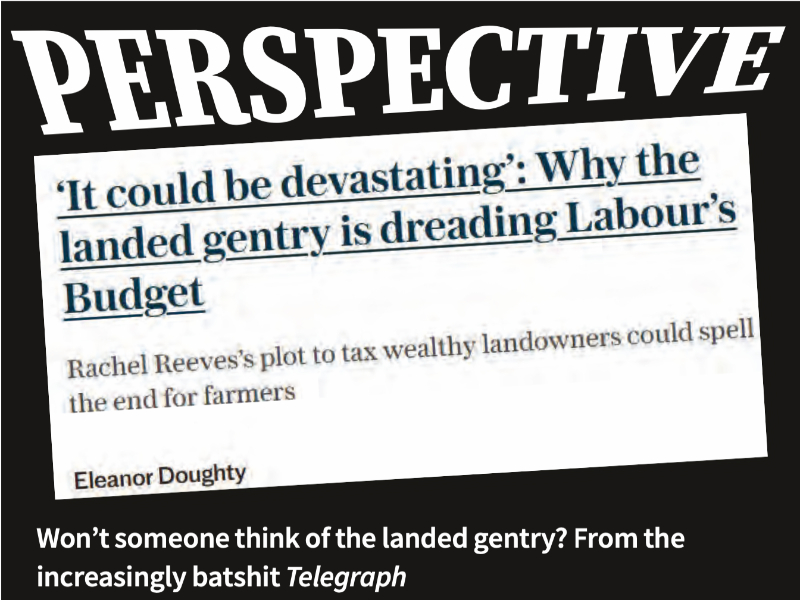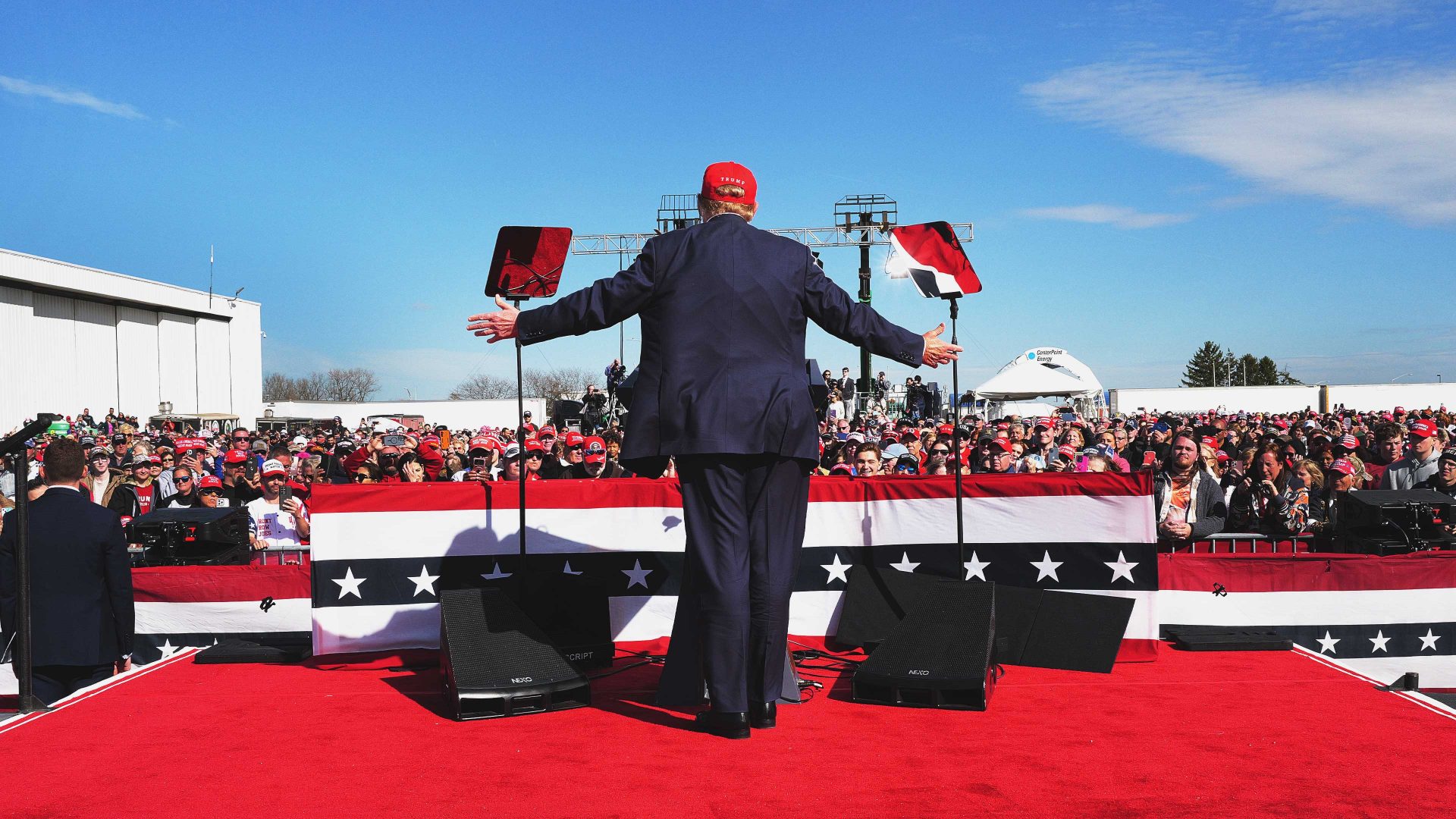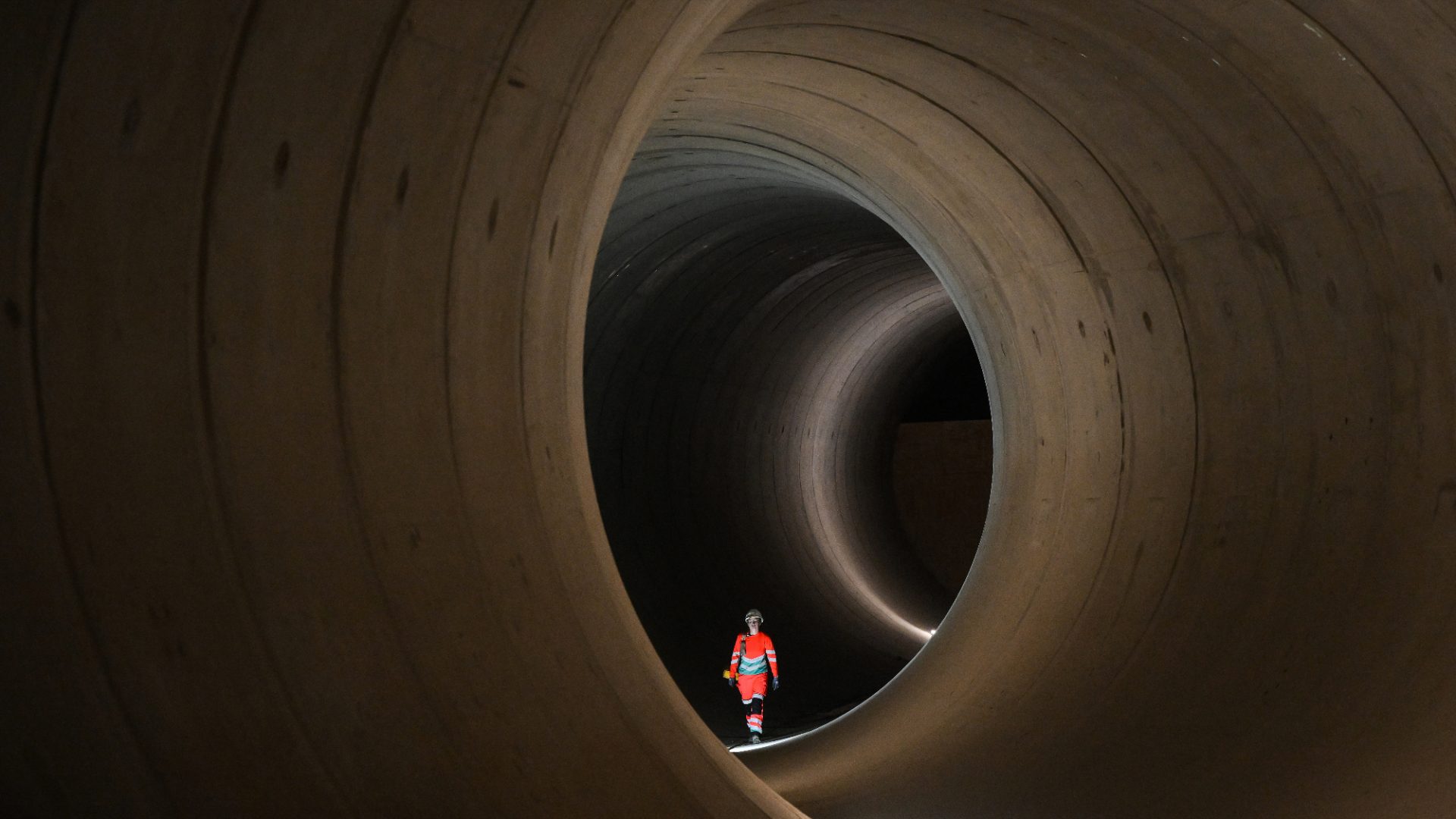I wonder how much of Donald Trump’s poll ratings actually are powered by nativism, primordial sensations and other forces described so expertly and entertainingly by Matthew d’Ancona in “Primal Scream” (TNE #409), and how much are simply because he is running against a Democrat who with Joe Biden presided over large rises in food and fuel bills?
Other world leaders who were in power during the 2021-23 inflation surge caused by Vladimir Putin’s invasion of Ukraine and the fallout from Covid stimuli have been voted out. You can make the case that rather than America being fatally drawn to Trump, a saner and less divisive Republican candidate would already have this race sewn up.
Caroline Hampton
Re: “Can she do it?” by James Ball (TNE #409). I’m desperate for Kamala Harris to win, and to be proved wrong. But sorry, I just don’t think America is ready for a woman as president.
Sue Firth
Re: Nigel Warburton on Plato, democracy and the US election (TNE #409). One quote comes to mind: the American comedian George Carlin’s “Never underestimate the power of stupid people in large groups.”
Richard Copeland
Following up on Nigel Warburton’s piece – unfortunately, the USA is not a genuine democracy. The will of the people does not prevail, since as Trump’s original elevation showed, the electoral college can overturn the number of votes cast in the general election; and if there is a tie in the college, it is Congress and the Senate that decide the result.
The US constitution is treated as holy writ, but it is, in the case of presidential elections, fundamentally anti-democratic. Neither party, however, shows any sign of recognising this. My guess is that Harris will win the election and lose in the electoral college, and Plato’s fear for democracy will result.
Thomas Wilson
It was intriguing reading Philip Ball on democracy in TNE #409. Recent history shows its vulnerability. Democratic systems have not kept up with increased power and influence of misinformation and disinformation.
The founding fathers of the USA didn’t think it would ever be necessary to protect the country from an dictatorial president. Some of Trump’s antidemocratic action in 2020 may be legal according to the US constitution. This shows the need for constitutional amendments to protect democracy from attack by future presidents.
An inherent fault of democracy is that it gives an equal vote to those who believe in and support democracy and those who don’t. Respect for democracy falls as scandals show some politicians don’t respect democracy enough to be honest and fair. Like Gandhi, I think democracy would be a good idea.
Roland Lazarus
Billericay, Essex
“Trump must not decide the fate of Ukraine”, writes Paul Mason in TNE #409. But it’s OK for the US to decide the fate of Palestine. It’s interesting that Palestine’s fate is decided by the US and Israel. Palestinians have no say.
Richard Riddle
If Trump forces Ukraine into a settlement I have no doubt that he will then make billions by placing his kids and lackeys on the non-executive boards of the Russian-linked firms he will pick to rebuild the place.
Em Jackson

Calamity pain
Re: Alastair Campbell on Brexit (Diary, TNE #409). I think Brexit is much like addiction. One knows that it is truly harmful, but it often takes calamitous circumstances to shake people out of denial to confront it.
The problem with Brexit is that for most people, the lived experience is slowly rather than quickly calamitous. Had it been the economic tsunami peddled by George Osborne it might have shaken everybody to their senses.
Nicholas Pope
Polling tells us that 78% of Labour voters, 77% of Lib Dems, 73% of Greens, almost half of Tory voters and even a quarter of Reform voters think that Brexit was a mistake. There is an absolute democratic imperative to rescind it forthwith.
Demands for piecemeal nibbling amount to collaboration with a far-reaching betrayal of Britain and its people. Those who preach appeasement and fear to poke the hornets’ nest will find that the hornets multiply until they are out of control.
RW Mawby
I appreciate that Keir Starmer’s thinking is to tread warily and softly on Europe, in case it frightens the Brexit faction. But this moment is too good an opportunity to waste on mixed messaging and overtures, instead of producing the whole orchestral work!
Judith A Daniels
Cobholm, Norfolk
Quite apart from Alastair Campbell’s list of Brexit impacts, it has also weakened the cohesion of the UK with many younger Scots now determined to leave the UK union.
The day that Theresa May told Scotland that it too would suffer Brexit despite not voting for it most likely sealed the UK’s fate.
Roddy Grant
Alastair Campbell’s Diary mentions “giving back to younger generations the rights and freedoms taken away from them”.
It is dreadful that the new government has no plan to re-tie links with the various EU mobility programmes made available to generations of young people in this country before Brexit.
Many of these programmes were designed by us Brits and were launched during the Thatcher period in spite of her lukewarm view of the EU. They introduced a European dimension into our national thinking and prepared young people in schools, universities, youth groups and in work to benefit from the new opportunities provided by our EU membership.
The best known of these programmes, Erasmus, launched in 1987, has met with phenomenal success, not only for young Europeans but for many other young people throughout the world through Erasmus+. Now, Ros Taylor reports: “The new government is just not terribly interested in encouraging young people to go abroad”, with their “dogged belief that Britain ought to be enough for anyone”.
Shame on you Sir Keir! What a short-sighted vision of the needs of our world today, and more particularly of our world tomorrow!
Paddy Carpenter
Féricy, France
Ship of fools
In “Labour are fools to laugh at Badenoch and Jenrick” (TNE website, tinyurl.com/TNElaugh) Michael Chessum is right to criticise Keir Starmer for praising Giorgia Meloni’s apparent success in stopping some boats crossing the Med.
I was in south-east Sicily near Syracuse recently. There was evidence of patrol craft out to sea, but little else.
Local people were very sceptical about Meloni’s claims. They also claim there is a brisk trade in clandestine crossings where Italian yachts and other smaller but seaworthy boats bring people across in return for very large amounts of money, and that the numbers involved are far greater than those attempting the crossing in small boats.
The authorities turn a blind eye to this and Meloni ignores the problem. The patrols and much-vaunted (though very infrequent) interceptions are very expensive window-dressing. Starmer’s interest was a source of bewilderment and disbelief.
Rex Nesbit
Baring gifts
Re: Peter Trudgill’s “The same but different” (TNE #409).
I respectfully suggest that décolletage is derived from décolleter, “to bare the neck and shoulders”, rather than from décoller, “to take off”.
Rory Cunningham
Re: “Fishing for gold in Paris” (TNE #408). Thank you, Peter Trudgill, for this: “Speakers of American English most often pronounce this term in a pseudo-French way, with the stress on the second syllable, as they also do with, for example debris and ballet.”
In French, there are NO stresses, as each syllable has equal weight or strength. To English speakers, this may sound like French people stress the last syllable, but that’s because most English speakers tend to swallow the last syllable (and frequently other syllables as well).
Although I learned French for 17 years in the UK, I only found this out when I moved to France. Why did no one tell me before?
Thomas Landon
When mentioning the Indian language, Malayalam, in TNE #407, Peter Trudgill could have pointed out that it’s the longest palindrome in English. Malayalam is the predominant language of Kerala state, without the citizens of whom our NHS would be in even more dire straits.
Ray Gaston
Kirk Ella, Hull
War cry
Re your “World At War” issue (TNE #408). I lived through the lost Arcadia between the fall of the Berlin Wall on November 9, 1989 and the September 11 attacks in 2001.
Francis Fukuyama and his acolytes laughably considered the former event to mark “The End of History”. And yet History is back with a vengeance – in the US, Ukraine and the Middle East – and the worst may yet be to come (we’ll have a better idea on November 5).
Rather than listening to Fukuyama, policy makers would have been better served reading a prescient editorial in the New Republic from December 1989. It said this: “In terms of sheer stability, the cold war has possessed an austere elegance that is unlikely to be matched by any subsequent arrangement of nations. A world nearly divided into two sides, each headed by a rational leader armed to the teeth with nuclear warheads – can you imagine a planet less likely to be engulfed in war? (On the other hand, can you imagine a war more terrifying?)”
Will Goble
Rayleigh, Essex
Lynne O’Donnell asks “Is the idea of peace in our time an impossible dream?” (TNE #408). The short answer is Yes, if that is what we choose to believe, and No, if we look at the causes of war and work at all levels, from our community to the UN, to prevent the development of conditions that lead to war, and put ourselves out to rectify them.
There are things that can be done to reduce the availability of ammunition and explosives, to address religious prejudice and hatred, to reduce the numbers and powers of authoritarian rulers, and to get secessionists around the negotiation table.
There are many other measures that can be rolled out to weaken the development of situations that lead to war, but the single toughest change is to limit the growth of the arms industry on a global basis. To challenge the profitability of this industry (worth $2.3tn in 2024) will provoke a defensive reaction from the industry in the media. They will feed a tiny percentage of their profits into the accounts of government ministers and big beasts in the media, and voters will quickly come to accept that peace is indeed an impossible dream.
So the answer to Lynne O’Donnell’s question is probably, sadly, Yes. But still, we have to try.
Richard Lawson
Churchill, Somerset

BELOW THE LINE
Comments, conversation and correspondence from our online subscribers
Thank you for Jamie Klingler’s “Viva Gisèle Pelicot, my Che Guevara” (TNE website, tinyurl.com/TNEPelicot). I too have been there and accepted the shame as both a child and a woman. Gisèle Pelicot is my hero.
Wendy Hodgson
Re: Tanit Koch on whether England need a German manager (TNE #409). A Soviet linesman would be preferable.
Andrew Robinson
Re: Dilettante on parental leave (TNE #409). Marie Le Conte is the main reason I renewed my subscription to TNE. Whatever you’re paying her, double it.
Geoff Stevenson
Re: “Labour’s impossible budget” (TNE #409). Does Jonty Bloom really want more UK businesses to be run by private equity firms? Come on Jonty, think again.
Mark Rowlands
No surprise to see the Daily Mail in Lie of the Week (TNE #409). The Mail lies serially, and has done for decades. What else can one expect from a rag that brazenly feeds its readers with a diet of self-serving falsehoods, half-truths and pork pies in the cause of a half-baked crypto-conservative ideology that harks back to a Thatcherite vision of society (the very existence of which she denied)?
Julian Heddy
Charlie Connelly’s Great Life of Bill Graham (TNE #409) was a fascinating article. Graham was revered by both fans and bands. On one occasion he organised breakfast for a few thousand fans after the Grateful Dead played a New Year’s Eve concert at Winterland that went on until 5 in the morning. There was a tribute concert a few days after his death attended by the west coast bands and thousands of fans paid tribute.
Frank Parry
Josh Barrie in TNE #408 on London’s Le Beaujolais (“The oldest French wine bar in London, a place so charming if you were to put baggy trousers on it you would mistake it for Daniel Craig”) was beautifully written, beautifully defined.
Edna Crepaldi
JOIN THE CONVERSATION
Subscribe and download our free new app to comment and chat with our writers



